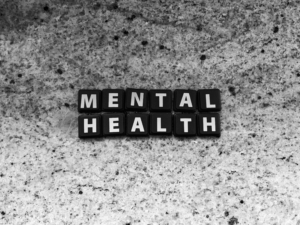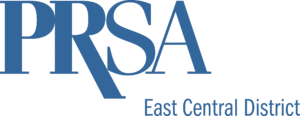
By Jennifer Kramer, APR, PRSA-ECD Past Chair, Advocacy Chair
In honor of World Mental Health Day, PRSA East Central District hosted a powerful virtual session exploring how communications professionals can navigate digital overload and reclaim control over their attention, creativity and emotional wellbeing.
A Growing Crisis of Focus and Wellness
Held the day before World Mental Health Day (October 10), the “Digital Detox: Reclaiming Your Attention and Joy” webinar offered timely insights into the intersection of communications work, digital dependency and mental health. Led by Lisa DuBois Low, APR, an associate professor of practice at Texas Tech University, the 60-minute session unpacked the hidden costs of an always-on digital culture and the restorative strategies available to help professionals reconnect with what matters.
Statistics shared during the introduction framed the urgency of the topic:
· 1 in 5 U.S. adults experiences mental illness each year
· Over 50% of those receive no treatment
· More than 122 million Americans live in designated mental health workforce shortage areas
· 30 million lack access to the care they need
These numbers are especially sobering within public relations, where expectations of availability, speed and emotional labor are constant. According to a 2023 PRCA/CIPR report, 91% of PR professionals report mental health struggles, and nearly 60% say burnout is a recurring problem. According to the 2024 Muck Rack State of PR Report, over 65% of PR professionals report working more than 40 hours per week, and 21% regularly clock more than 50 hours, underscoring the demanding nature of the field.
Why a Digital Detox?
The webinar’s focus wasn’t about going offline but on reclaiming agency in a world that increasingly monetizes distraction. Low introduced the concept of the “distraction economy, where platforms are engineered to inform and keep users engaged through behavioral loops, gamified interactions and bottomless scroll.
These constant micro-interruptions reduce productivity, impair short-term memory and increase cortisol levels, making individuals feel like they are never “caught up.”
Low emphasized that attention is not just a personal resource but a professional asset. The quality of strategic thinking, relationship-building, storytelling and leadership all depend on focus and clarity. And yet, these are precisely the qualities eroded by digital overload.
Small Shifts, Lasting Results: Strategies for Reclaiming Attention
Low shared practical strategies backed by psychology that professionals can implement immediately:
1. Monotasking over Multitasking
Multitasking, she noted, is a myth. What most people experience is task switching, which creates cognitive fatigue. Instead, monotasking, focusing on one cognitively demanding activity at a time, improves retention, efficiency and satisfaction.
2. The Ivy Lee Method
This classic prioritization tool encourages ending each day by listing six important tasks for tomorrow, ranked by priority. The practice simplifies planning and reduces anxiety.
3. Timeboxing
Structuring the day around intentional work blocks (such as 90-minute sprints) with built-in breaks helps maintain stamina without burnout.
4. Movement Snacks and Nature Breaks
Physical movement every 30 minutes, even just a few minutes of stretching or walking, has proven cognitive and emotional benefits. Research cited during the session found that spending 20 minutes in nature significantly reduces cortisol levels, improving mood, attention, and emotional regulation.
5. Create “Technoference” Boundaries
Low encouraged attendees to set clear work/personal device boundaries and to define specific times for email, news and social scrolling rather than letting these activities fill every spare moment.
Mental Health Support: A Professional Imperative
The session closed with a reminder that today’s communications professionals aren’t just managing external narratives and navigating the blurred boundaries between life, work and digital life. As the 2024 Edelman Trust Barometer showed, employees now rank mental health support as one of the top five expectations of their employers.
For PR professionals, that support must begin internally, with healthier habits, team norms and recognizing that wellbeing is not separate from performance. It’s foundational to it.
Watch the Webinar + Access the Tools
If you missed the live event or want to revisit Low’s strategies, the resources are available for ongoing use and sharing:
Recording: Watch the full webinar here
Presentation Slides: Download the slide deck
PRSA ECD Mental Health Toolkit (continuously updated): Explore mental health resources
Thank You, Lisa Du Bois Low, APR
PRSA East Central District deeply appreciates Low’s expertise, warmth and evidence-based guidance. Her research and leadership continue to elevate conversations around digital wellbeing, AI ethics and intentional communication, which are critical topics in today’s fast-paced communications landscape.
As mental health awareness grows, PRSA ECD remains committed to providing tools, support and spaces that prioritize wellness and resilience across the profession.
